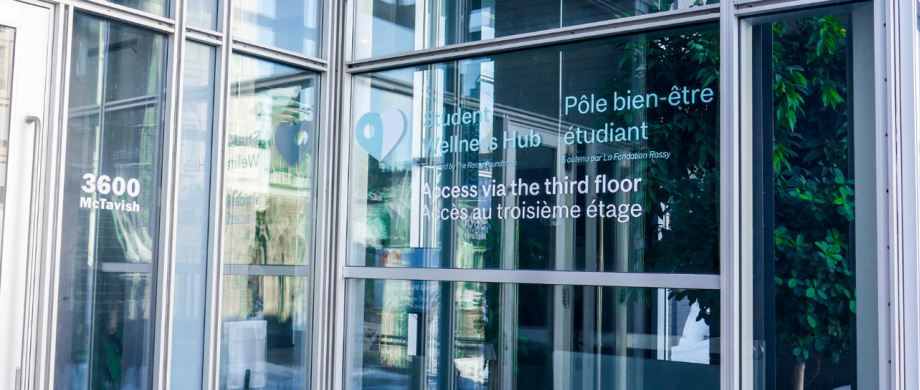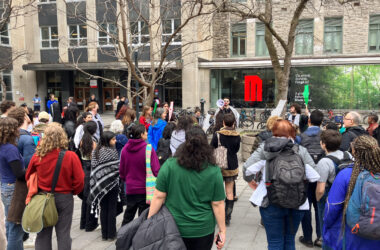The week of Jan. 3, Charlie*, U1 Medicine, said they contacted the Student Wellness Hub’s phone line every day of the week in an attempt to book an appointment for their partner, who was suffering from a concussion. Instead of receiving support at the Wellness Hub, which would be fully covered under McGill’s insurance plan, they were redirected to a hospital emergency room where there can be up-front costs for international students. According to Charlie, the operator informed them that all of the Wellness Hub’s medical staff had been reassigned to public hospitals as a result of the province’s surge in COVID-19 hospitalizations.
“[The Wellness Hub is] actually luring you into almost a false sense of security, ” Charlie said in an interview with The McGill Tribune. “If I was a sick person who was getting worse day by day, I might avoid going to the ER because of the expense and instead […] hope that I get an appointment the next day and then the next day [at the Wellness Hub] and get sicker [in the meantime].”
Frédérique Mazerolle, a McGill media relations officer, clarified that the hours physicians dedicate to the Wellness Hub are only ancillary, meaning they do not fulfil the Plans régionaux d’effectifs médicaux (PREM) or activités médicales particulières (AMP) requirements obligatory to practice medicine in Quebec.
“Our physicians are those who offer their time to us after fulfilling all these government-mandated requirements,” Mazerolle wrote in an email to the Tribune. “It is important to note that while we do serve a large number of students […], our services are not intended to serve as the primary care provider for our students.”
Charlie believes that the Wellness Hub should be more transparent with the student body, and should notify students when they are unable to meet demands or handle emergency situations.
“[The Wellness Hub] is being untruthful in that they are not clearly telling people that they really don’t have any appointments,” Charlie said. “[Limited access to physicians] is still a problem for the university because they need to offer their students healthcare and not just the illusion of healthcare, plus a fee that you have to pay for that illusion of healthcare.”
Arwyn Regimbal, U1 Social Work, sees many of the Wellness Hub’s weaknesses as indicative of a larger institutional defect, and expressed frustration with the Wellness Hub’s reactive, rather than proactive, mental health resources.
“If you just ignore minor health needs now, eventually they’ll be bigger health needs,” Regimbal said in an interview with the Tribune. “[The Wellness Hub’s counselling services] are very short term, i.e. crisis counselling, and I was told that long-term counselling isn’t really a thing [the Wellness Hub offers]. From the systemic view, I understand [that] mental health in Quebec is at a crisis point, but at the same time, keep.meSAFE is not an appropriate solution in the long term.”
The Wellness Hub has faced persistent criticism over its inaccessibility, prolonged wait times, and limited appointment availability.
Students’ Society of McGill University (SSMU) Mental Health Commissioner Julia Caddy acknowledged that student mental health has reached a critical point in light of the fluctuating and uncertain public health situation. Caddy shared Regimbal’s view that the Wellness Hub offers limited mental health services, but believes that SSMU can provide an alternative for students.
“One strategy is to meet students where they’re at by having more targeted initiatives and drop-in sessions for students to unload […] both as a social environment but also as support,” Caddy said in an interview with the Tribune. “If we can distribute people to the [options] that are actually relevant to them, it will decrease the demand and increase the capacity of the right services for the right people.”
*Charlie’s name has been changed to preserve their anonymity.











Pingback: McGill not equipped to handle emergency mental health care cases - The McGill Tribune
Pingback: Systemic neglect continues to worsen Montreal's houselessness crisis - The McGill Tribune